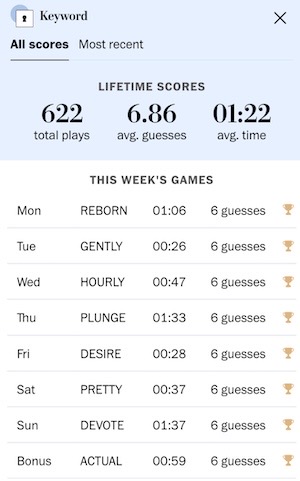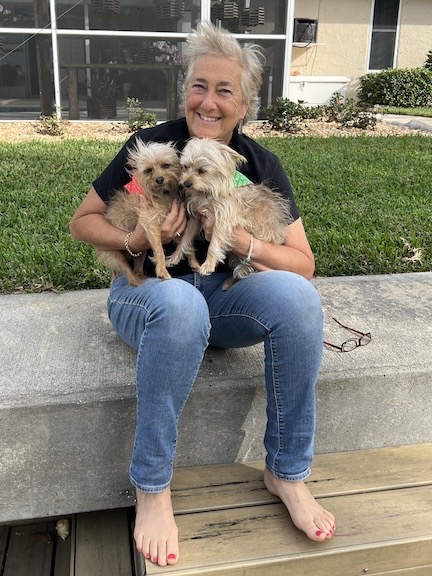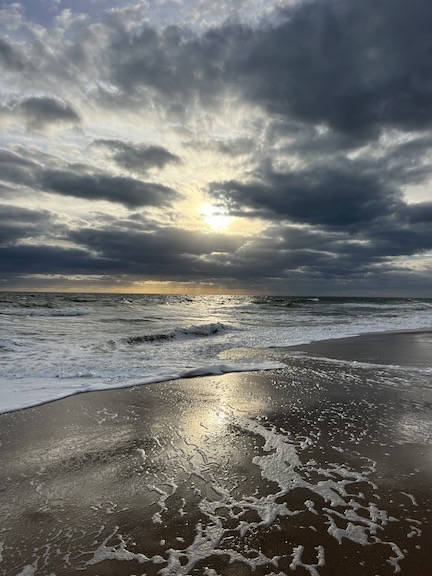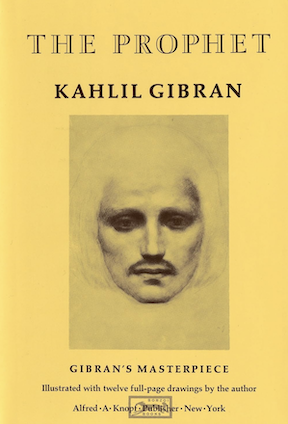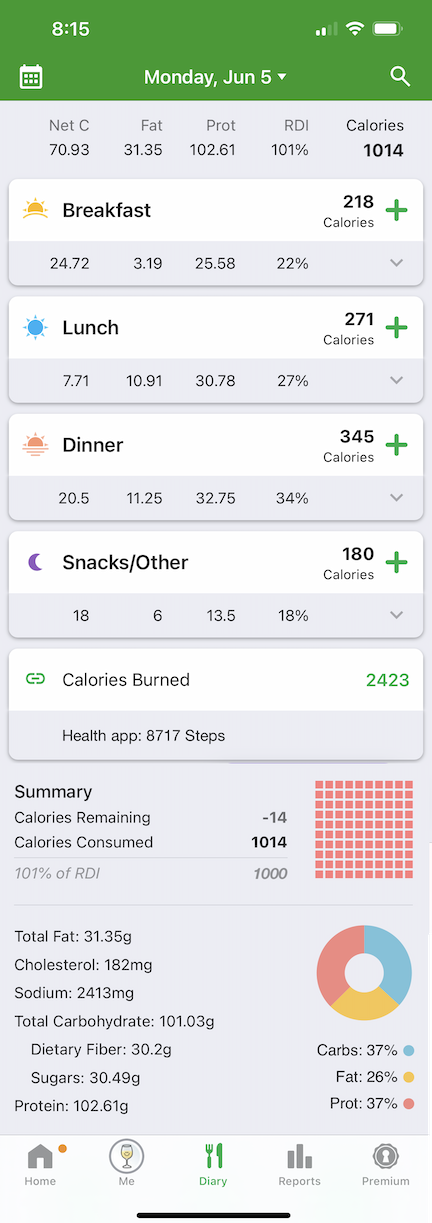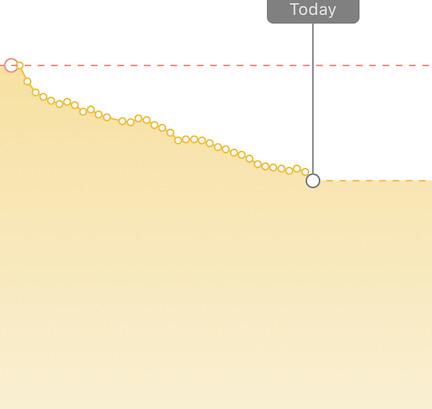I develop a daily puzzle routine — with friends — to keep my mind challenged.
I’ve always been a fan of word games and puzzles, whether it’s something like Wordle or a crossword puzzle or the Washington Post’s excellent Keyword game. I’ve been doing them on and off for a while, but have recently made them, and other games, part of a morning routine.
The Routine
I wake very early — usually between 4 and 5 AM. (And please don’t lecture me about going to bed later; don’t you think I’ve tried?) I don’t mind waking up early. A year or two ago, I developed a morning routine that kills those first two or so hours pleasantly. It consists of these things, usually in this order:
- Morning bathroom visit.
- Make coffee.
- Put my Apple watch on the charger. (I wear it overnight to track my sleep.)
- Get back into bed with my coffee and turn on the light. (It’s still dark here this time of year at 5 AM. It won’t be in a few months.)
- Use my iPad to check in on social media. I’m on just Mastodon now and I’ve used extensive filtering to block out 90% of the political crap going on. (I do this for mental health reasons. I still know what’s going on, but I don’t have to live and breathe it.) So catching up on what went on overnight is usually pretty quick.

Last week’s Keyword Results. I think this might have been my best week yet; the big challenge now is getting my averages down.Play a few daily online games: Wordle, Connections, Keyword, Sudoku (all three levels).
- If I woke up really early, sometimes I’ll do a crossword puzzle; I have a great app on my iPad with more than 100 Sunday puzzles saved up and ready to go. (I don’t want to start my day before 6 AM unless I have something I need to do that early.)
By the time I do all that — the difficult level of Sudoku usually takes 25-50 minutes — my pups are ready to go out. If not, I wake them up and let them jump all over the bed, excited that we’re going to start our day. Then I throw on some clothes, take them outside (or for a walk, possibly on a leash if we’re on the boat or in the camper). When we get in, they usually go back to bed, but sometimes they wait by their dishes for food and I feed them and then they go back to bed. (Seriously: my dogs sleep a lot.)
Wordle
I have two Wordle buddies, Cheri (an old friend) and Teri (a neighbor). Every morning I play and send them my results. I have to use the Send Later feature on my phone so I don’t wake them. (Not everyone uses Do Not Disturb, although I don’t think I could live without it.)
Back when I had just one Wordle buddy, that buddy went on a trip to Europe and didn’t post her results. Because I didn’t get a text from her (and had not carved my morning routine in stone yet), I forgot to play and broke a 118-game streak. That really pissed me off. I’d rather just lose one day to break a streak than to break it by simply forgetting to play.
Then I started sharing results with Teri, too. I joke with her that it’s my proof of life. If she doesn’t get a Wordle text from me by noon, she should come make sure I’m not dead.
Connections & Sudoku
Connections and Sudoku are new to the routine. I used to play some Wordle-like puzzles that had me solving four or eight or even sixteen Wordles at once, but when Teri introduced me to Connections, I decided to mix things up a bit.
Connections gives you 16 words and you have to figure out how groups of four of them are related. It’s a lot tougher than it sounds, especially until you get the hang of it. I like it because it makes me think of each word in multiple ways. Because there’s no timer, there’s no stress. I get it 5 or 6 times a week. I think my longest streak was 6. That’s okay. I love the challenge.
I know that Sudoku has been around forever but I never got sucked in. I’d always seen it on paper and it looked like a lot of work. But then I discovered the digital version on the Washington Post website. It does the “pencil work” for you, leaving the task of using logic to fill in the grid. In the beginning, I didn’t fully understand the ways I could look at the pencil work and grid to logically deduce answers or eliminate possibilities. I found myself at a point where I’d have to guess, and I knew that wasn’t right. So I did some research and learned.
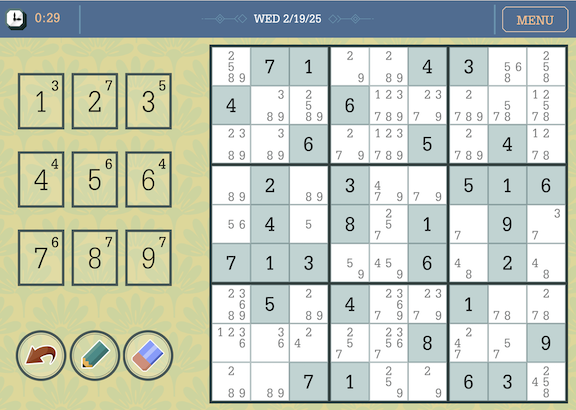
Here’s what today’s Sudoku looks like on the web. I usually play it on my iPad and it looks different, but not by much. I have what I call the “pencil work” showing. If I were doing this on paper, those little numbers would need to be manually penciled in (and erased) after scanning each row, column, or 3×3 grid to figure out what numbers are possible. The digital version keeps this updated, but at a certain point, I have to modify the pencil work to eliminate the little numbers using logic. That’s the part I like best.
Each day there are three puzzles: easy, medium, and difficult. The easy puzzle is painfully easy — I’m not sure why I bother with them. The medium puzzle is a good warmup for the difficult one. I love the way I can get to a point in the difficult puzzle where I seem stuck — and then use what I’ve learned to scan through the pencil work and eliminate possibilities. Then look at it all again and start getting answers.
I’m extremely pleased with this difficult Sudoku because it really makes me tap into my brain power and use logic. It forces me to focus. I know that I can solve the puzzle if I look at it in all these different logical ways. I’m really using my brain and I feel the challenge. I love it!
Solving Puzzles as a Diagnostic Tool
I think that my ability to solve difficult puzzles is what’s going to cue me in when I’m heading into cognitive decline. I live alone, so there’s no one around to tell me if I’m starting to slip mentally. It’s up to me to diagnose any possible problems. I look at the difficult Sudoku as my daily test to make sure my brain is still functioning. If I can’t solve the puzzle, I have a problem.
I know my short-term memory is getting bad. For example, I’ll solve the Wordle and text it to my two friends. Later, after 7 AM my time, I start getting their results. By that time — just an hour or two later! — I can’t remember what the answer word was, let alone the words I used to get it.
I don’t think my memory is a problem, at least not yet. I have tools and techniques to work around any short-term memory issues:
- I keep an open spiral notebook on my desk to write down things I need to remember for a day or two. I tear off the sheets when I no longer need the notes.
- I have a to-do list app on my phone, tablet, desktop computer, and laptop that automatically keeps the lists synced, so I can add items anytime, anywhere and have them available when I need them. I even use this for my shopping list and things I need to do 2 months from now, like changing the HVAC filter.
- As I mentioned elsewhere, I use Scrivener to take notes on things I need to remember long term that aren’t things I need to do, like the size, in pixels, of the featured image on my Great Loop blog — why can’t I remember that?) Those files are stored in a Dropbox folder so I can access them from any device, anywhere.
As things stand, I’m not worried about memory or cognitive issues. But I’m getting older and I need to be aware of the situation. I think my puzzle solving abilities will be a good indication of how things are.

